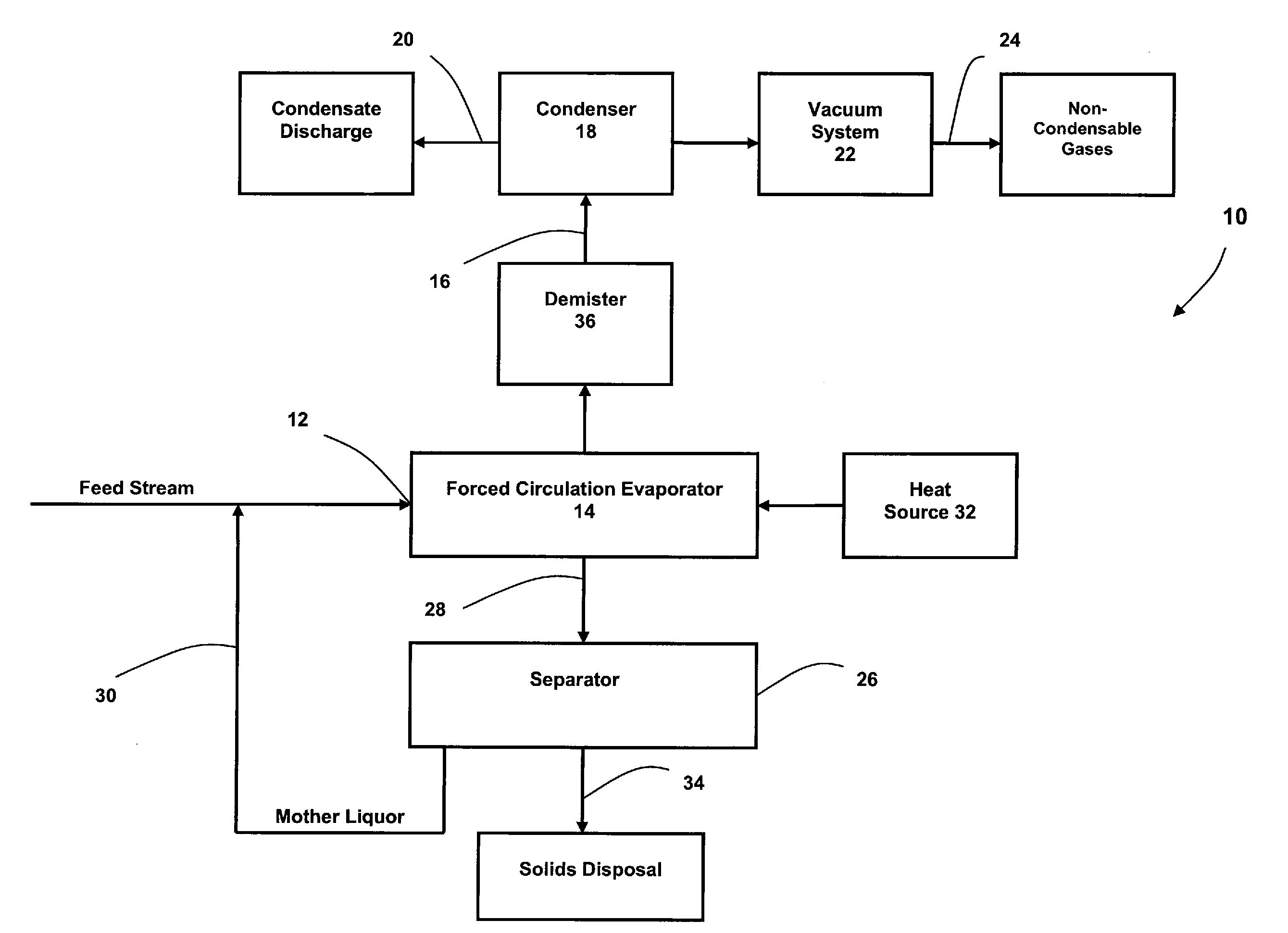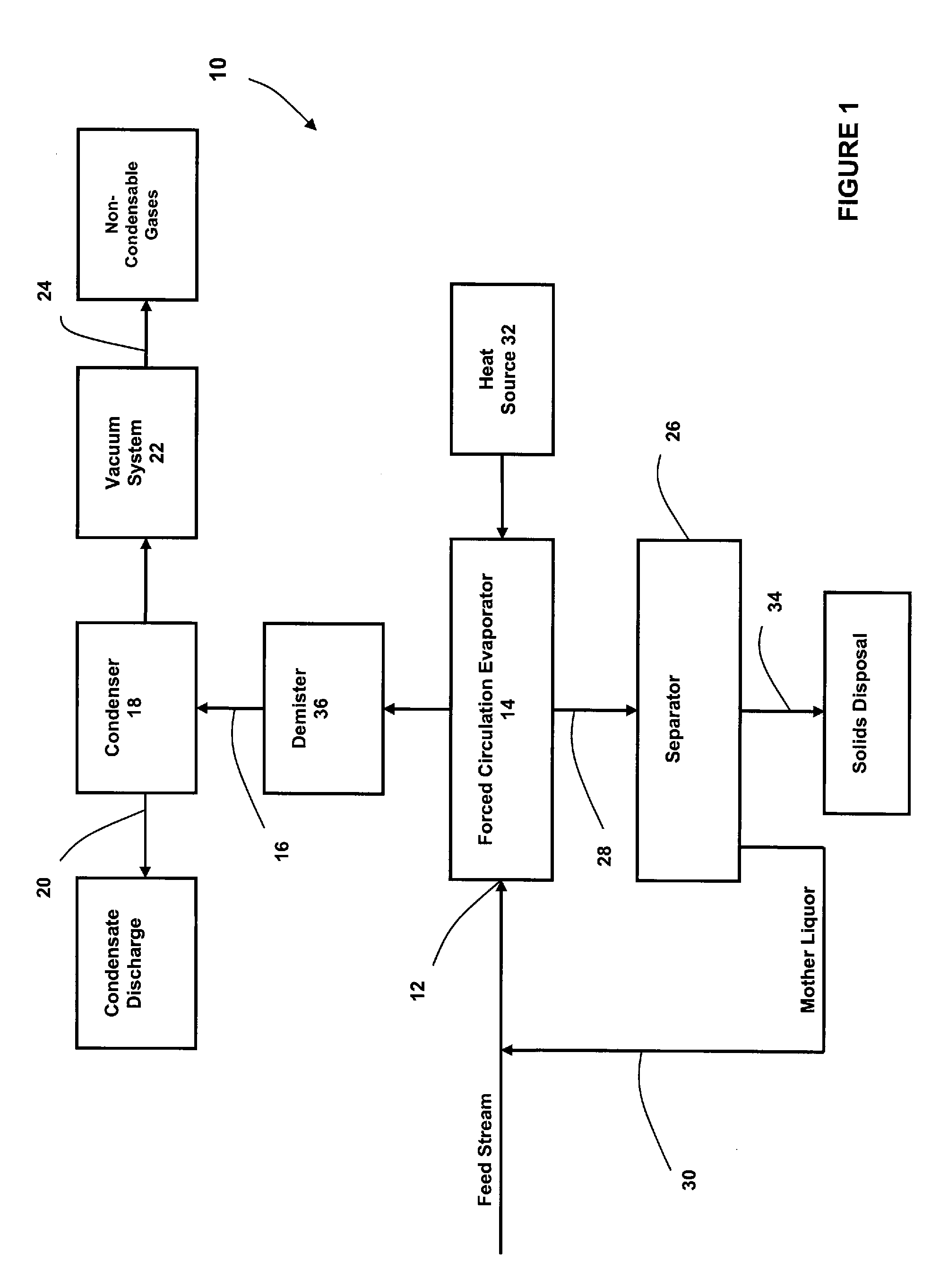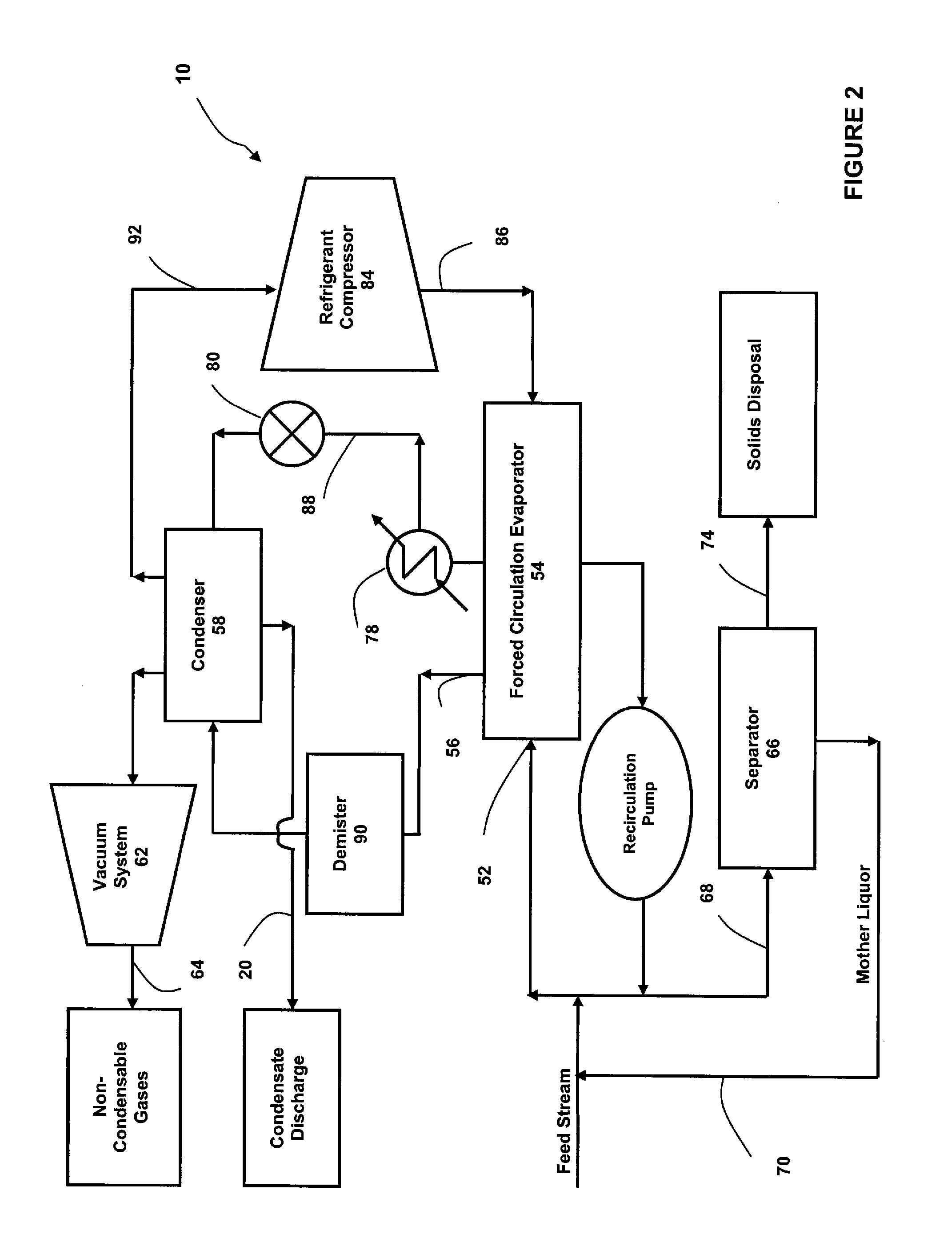Method for Removing Dissolved Solids from Aqueous Waste Streams
- Summary
- Abstract
- Description
- Claims
- Application Information
AI Technical Summary
Benefits of technology
Problems solved by technology
Method used
Image
Examples
Embodiment Construction
[0020]The present invention entails an evaporation-crystallization process for removing dissolved solids from a waste stream. This process is appropriate for removing several types of solids from a waste stream. In some embodiments, the process removes highly soluble solids such as those found in flue gas waste streams and other similar waste streams. Such highly soluble solids include calcium, magnesium, zinc and ammonium chlorides, bromides and nitrates. Often these materials cannot be removed from a waste stream using physical, chemical and biological methods. However, using the evaporation-crystallization process described herein substantially removes dissolved species from the waste stream.
[0021]The evaporation-crystallization process is operated at relatively low temperatures and low pressures. Lowering the operating pressure allows water from the waste stream to evaporate at lower temperatures. Salts often form many hydrates and double salts which precipitate at lower concent...
PUM
| Property | Measurement | Unit |
|---|---|---|
| Temperature | aaaaa | aaaaa |
| Temperature | aaaaa | aaaaa |
| Temperature | aaaaa | aaaaa |
Abstract
Description
Claims
Application Information
 Login to View More
Login to View More - R&D
- Intellectual Property
- Life Sciences
- Materials
- Tech Scout
- Unparalleled Data Quality
- Higher Quality Content
- 60% Fewer Hallucinations
Browse by: Latest US Patents, China's latest patents, Technical Efficacy Thesaurus, Application Domain, Technology Topic, Popular Technical Reports.
© 2025 PatSnap. All rights reserved.Legal|Privacy policy|Modern Slavery Act Transparency Statement|Sitemap|About US| Contact US: help@patsnap.com



